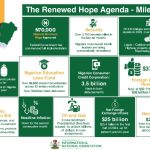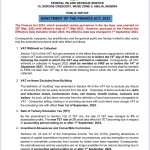By DEJI NEHAN
Emeka, a Nigeria residing in Canada, decided to invest his savings in a small housing project to help solve the housing shortage. But his dream quickly hit obstacles—confusing land titles, rising construction costs, and a market he didn’t fully understand.
Like many in Nigeria’s real estate sector, Emeka’s challenge wasn’t a lack of passion but a lack of knowledge. Without understanding land laws, market trends, and financing, many investors struggle to bring their real estate dreams to life.
This struggle isn’t limited to those in Diaspora. Many Nigerians—eager to invest in property face similar challenges. Despite earning and saving abroad, they often encounter fraudulent land deals, unclear ownership rights, and difficulty navigating the legal and financial systems. Without the right education, investing from overseas becomes a risky and frustrating process, leaving many hesitant to take the leap.
Today, we explore how real estate education can help turn dreams like Emeka’s into reality.
The real estate education is mostly in two parts –
(i) Making an investment choice (land/property locations, valuation etc)
(ii) Dealing with local artisans for property development
The Need for Education Building Requirements and Standards
Nigeria’s property sector is key to economic growth, but it faces major challenges. The lack of elaborate building control system and unstructured workforce of artisans with very low level of knowledge and expertise in building requirements and standards poses an enormous concern on the quality of build in Nigeria. For both local and diaspora investors, understanding the system is crucial to making informed and secure property decisions.
Building quality homes goes beyond fancy designs and having a property developer as title; it includes hands-on skills, ethical practices, and modern investment strategies. Whether through formal institutions, vocational training, or industry-driven programmes, equipping Nigerians—at home and abroad—with the right knowledge is essential for a more transparent, efficient, and thriving property market.
Building Skills, Building Futures: Practical Building Standards Education
Sustainable building and technical expertise are no longer optional—they’re necessary. In Nigeria’s real estate sector, a well-trained workforce is essential for constructing durable, affordable, and environmentally friendly housing. Carpenters, masons, electricians, plumbers, and other artisans play a critical role, yet many lack access to formal training that meets professional standards.
READ ALSO: Thai lady arrested at airport with boxes of illicit drug
Bridging the Skill Gap with Vocational Training
Most artisans in Nigeria learn on the job through informal apprenticeships, which often lack structure and professional guidance. This results in inconsistent quality, safety issues, and inefficiencies in construction. Establishing vocational training centers that offer standardized courses in construction techniques, material selection, and site management can bridge this skill gap and create a more competent workforce.
Some organizations and institutions are already making strides in this area:
- The Nigerian Institute of Building (NIOB) provides training and certifications for builders and artisans, ensuring they understand modern construction techniques.
- The Industrial Training Fund (ITF) runs vocational programmes that equip workers with practical skills in plumbing, masonry, and electrical installation.
- Lafarge Africa’s “Builders Academy” offers specialized training to artisans in cement application and construction best practices, helping to improve workmanship and safety on building sites.
By expanding these programmes and incorporating digital learning tools, industry partnerships, and government incentives, Nigeria can build a skilled workforce that meets international standards.
Technology and Financial Literacy in Real Estate
The rise of property technology (PropTech) is also transforming the industry. Digital land management systems help prevent fraud, streamline land registration, and make transactions more transparent. Builders and developers must be trained to use construction management software, drone mapping for site analysis, and smart housing solutions to stay competitive.
Financial literacy is equally crucial. Many individuals, like Emeka, struggle with understanding mortgage terms, investment risks, and budgeting for property projects. Without proper training, homeowners and investors often fall victim to fraudulent schemes or poor financial decisions. Programmes that teach real estate financing, investment analysis, and risk assessment can empower both professionals and everyday Nigerians to make informed choices.
Ethical and Legal Knowledge: The Backbone of Real Estate
Trust is the foundation of a strong and thriving property sector. When buyers, investors, and developers have confidence in the system, real estate flourishes. However, corruption, fraud, and a lack of transparency continue to threaten this trust in Nigeria’s market. Cases of land disputes, double allocations, and fraudulent sales have left many individuals and businesses in financial ruin. Without clear regulations and ethical standards, potential investors—both local and in the diaspora—hesitate to engage in the market, limiting growth and development.
Building Trust Through Ethical and Legal Training
This is why education in ethics, fair business practices, and corporate governance is not just beneficial—it is essential.
- Developers must understand the long-term consequences of cutting corners.
- Real estate agents must prioritize honesty and transparency in transactions.
- Government officials responsible for land allocation must uphold integrity.
By training stakeholders to follow ethical guidelines, the industry becomes more stable and trustworthy.
Strengthening Legal Literacy: Educating Investors at Home and Abroad
Beyond ethics, legal literacy is just as important. Land ownership in Nigeria can be complex and risky, especially for those unfamiliar with the system. Overlapping claims, outdated documentation, and cases of wrongful land seizures have caused financial losses for both local investors and Nigerians in the diaspora. Many have fallen victim to fraudulent land sales, multiple allocations, and illegal evictions due to a lack of knowledge about Nigeria’s real estate laws.
For instance, a 2022 report by the Lagos State Government revealed that nearly 70% of land-related disputes in the state stem from improper documentation and multiple claims on the same property. Additionally, many Nigerians abroad struggle to invest in property back home because they lack guidance on secure transactions and trusted real estate practices.
Organisations Providing Real Estate Education
Several organizations and private companies are working to bridge this knowledge gap by offering legal education, investment guidance, and certification programs for both real estate professionals and individual investors:
- The Nigerian Institution of Estate Surveyors and Valuers (NIESV) – Provides training and certifications to ensure professionals stay informed about legal requirements, property valuation, and ethical best practices.
- The Lagos State Real Estate Regulatory Authority (LASRERA) – Educates buyers, sellers, and investors on land ownership laws, fraud prevention, and the importance of verifying property titles before purchase.
- Landwey Investment Limited – Runs property investment seminars and masterclasses, helping aspiring investors understand legal documentation, zoning laws, and smart investment strategies to avoid costly mistakes.
A Call to Action: Investing in Education for a Stronger Nigeria
To build a thriving and sustainable property sector, collaboration between the government, vocational institutions, private organizations, and industry leaders is essential. Property development education must go beyond traditional university programmes and focus on practical, skill-based training that empowers both professionals and artisans.
This requires:
- Investing in modern training facilities and research centers – Establishing vocational academies that provide hands-on training for carpenters, masons, electricians, and other construction workers to raise industry standards.
- Expanding technical and financial literacy programmes – Educating property investors, homeowners, and artisans on mortgages, investment risks, budgeting, and project management to reduce fraud and financial losses.
- Encouraging partnerships between training institutions and real estate firms – Developers and property organizations must collaborate with vocational schools to ensure that artisans and site workers receive up-to-date, industry-relevant training.
- Leveraging technology for real estate education – Online courses, mobile training apps, and digital certification programmes can make learning more accessible, especially for Nigerians in the diaspora who want to invest in property back home.
- Community Workshops & Government Partnerships – Collaborating with state governments and regulatory agencies to offer free or subsidized training sessions that teach homeowners, tenants, and small-scale developers about property rights, lease agreements, and land registration.
Empowering the next generation of property professionals isn’t just about creating jobs—it’s about building a stronger, more inclusive Nigeria.
The future of Nigeria’s real estate sector starts with education—and the time to act is now.
Join the Conversation
Education is the foundation of progress in Nigeria’s real estate industry. By investing in knowledge, skills, and ethical training, we can solve challenges like urbanization, affordability, and complex land laws. Together, let’s harness the power of education to create a real estate sector where every Nigerian has the opportunity to own a well-planned, secure, and affordable home.
We’d love to hear from you! What do you think about the role of education in Nigeria’s property sector? How can we improve access to real estate knowledge? Share your thoughts and let’s work together to shape a better future.
*The vision is to contribute to the development of Nigeria by leveraging the insights and experiences of the diaspora community. We aim to create a platform where knowledge and ideas can be shared freely, fostering a collaborative environment that drives progress and innovation. Our mission is to provide thought-provoking and actionable insights that can help shape policies, guide investments, and ultimately contribute to building a better future for Nigeria.













